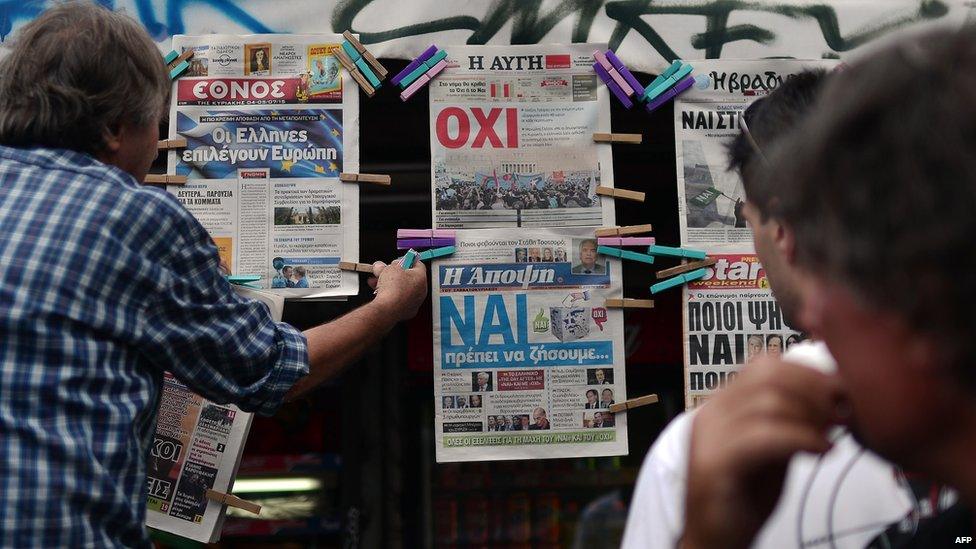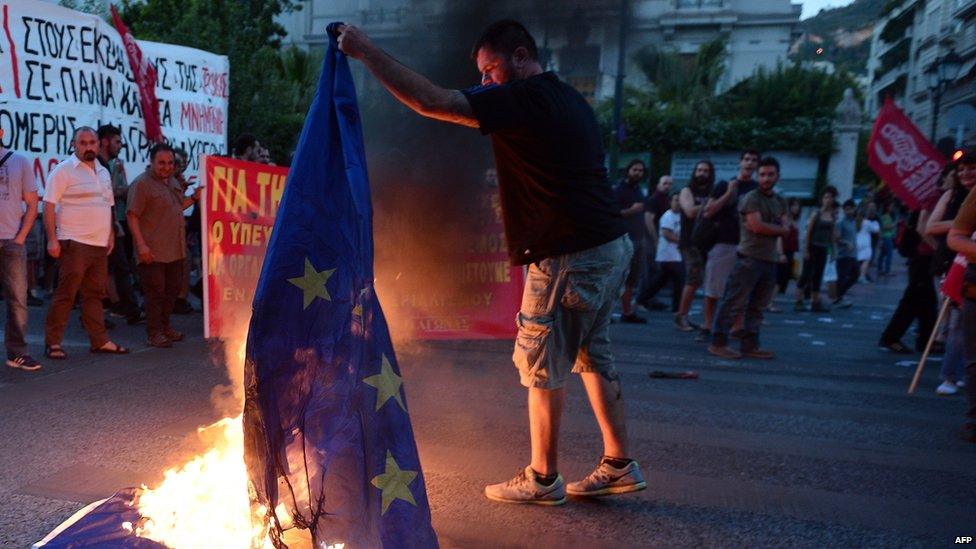A referendum that will sink or rescue the Greek economy
- Published

The Greek press reflects the divisions over the referendum
Everyone in Athens is nervous about the outcome of Sunday's referendum on the creditors' proffered (and semi-retracted) bailout terms.
One group more tense than most are those running the banks - because they know more than most that the outcome is life-or-death for their institutions, and therefore for Greek prosperity.
So the latest opinion polls, showing voters split right down the middle, are the stuff of bankers' nervous breakdowns. "It is nerve-wracking," one said to me, perhaps euphemistically.
Here is the ecstasy and agony of what could happen next week.
If Greeks vote "Yes" to the deal with creditors - pension cuts, VAT rises and all - just maybe the European Central Bank (ECB), whose governing council meets on Monday morning, will lift the ceiling a fraction on the provision of Emergency Liquidity Assistance (ELA).
That might not permit banks to start operating as normal with immediate effect. But it could allow the 60-euro daily ceiling on withdrawals to be raised a bit and the total freeze on transfers abroad to be eased somewhat.
And that might allow the Greek economy to be taken out of the deep freeze it has been in since banks were ordered to more-or-less close last Monday.
But if Greeks vote "No", as the government wishes them to do, there would be zero chance of the ECB turning on the ELA tap again.

Anti-EU sentiment has been fuelled by economic hardship in Greece
And as I said a few days ago, a "No" vote might persuade the ECB to demand additional collateral from banks to cover the risk of losses on the 120bn euros in emergency lending it and the Bank of Greece have already provided.
This would be very painful for the banks. Right now they have unencumbered assets sufficient to borrow an additional 17bn to 20bn euros from the Bank of Greece, if the ELA ceiling were lifted.
But if the ECB decided these assets - such as loans to Greek companies - are intrinsically less valuable than it currently thinks, and imposed a bigger so-called haircut on these loans, that 17bn to 20bn of possible additional credit could shrink to zero or a negative number.
Or to put this more clearly, rather than lending to banks, the Bank of Greece and ECB could start to demand some of their outstanding credit back. Which none of the banks are in any position to give.
Greek banks would go from their current frozen state to totally and utterly crippled. Which would dash any chance of them providing the fuel to re-start the Greek economy.
And that would create a vicious cycle of more of the loans they've made to businesses and households going bad. Which in turn would wreak further damage on the banks.
So there is a heavy responsibility both on Greek voters and then the European Central Bank over the next 48 hours. They will decide whether the Greek financial system and Greek economy stands or falls.